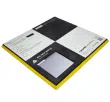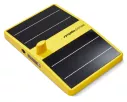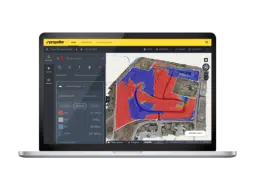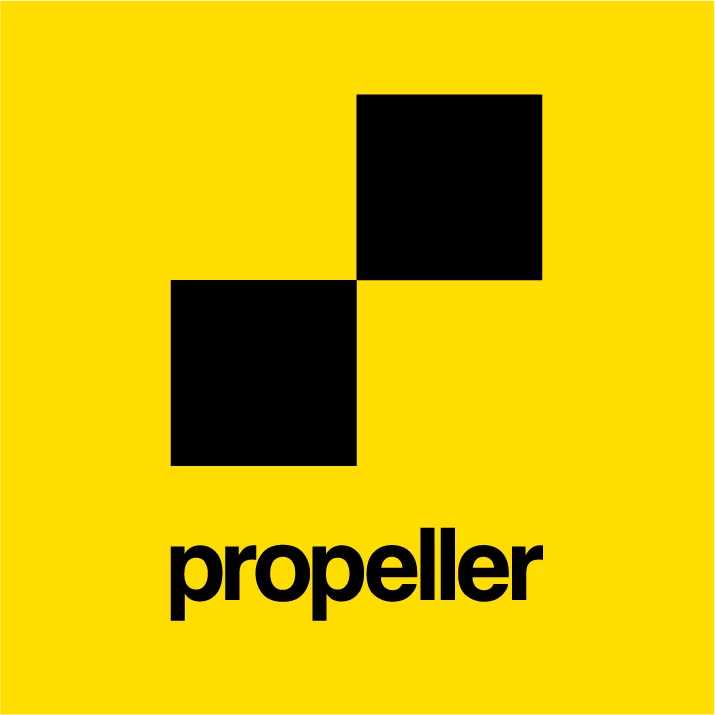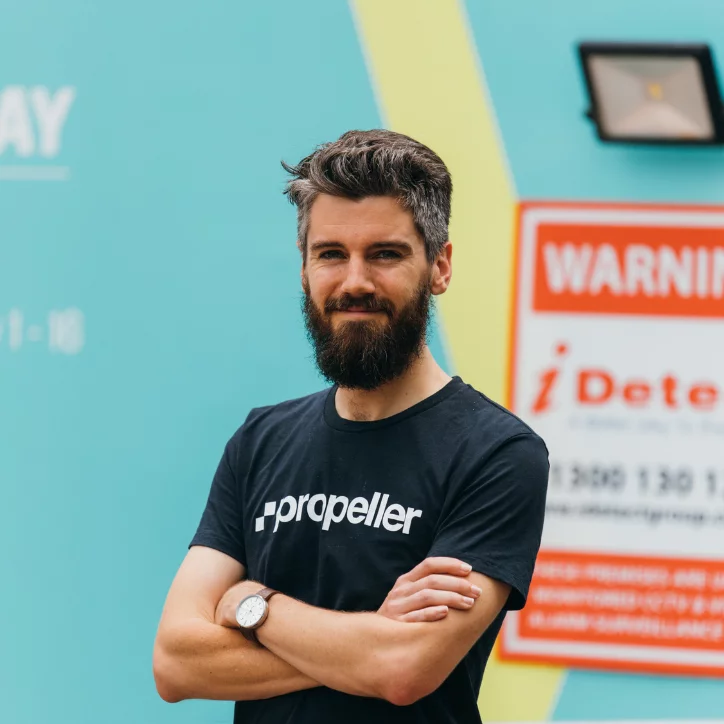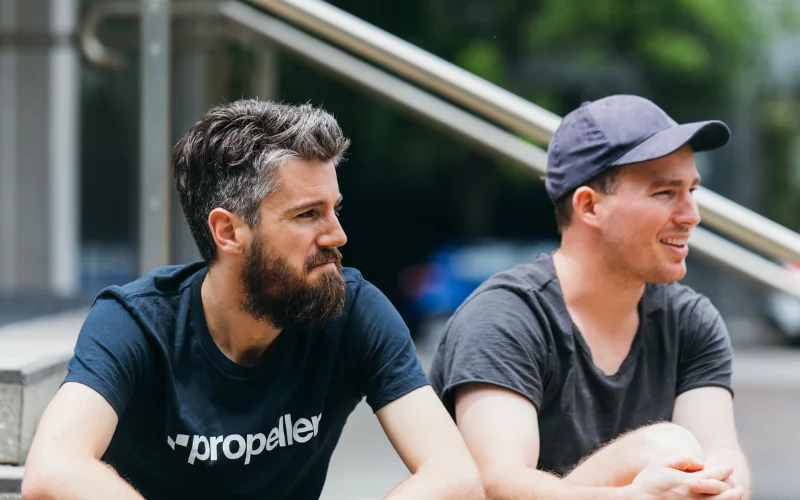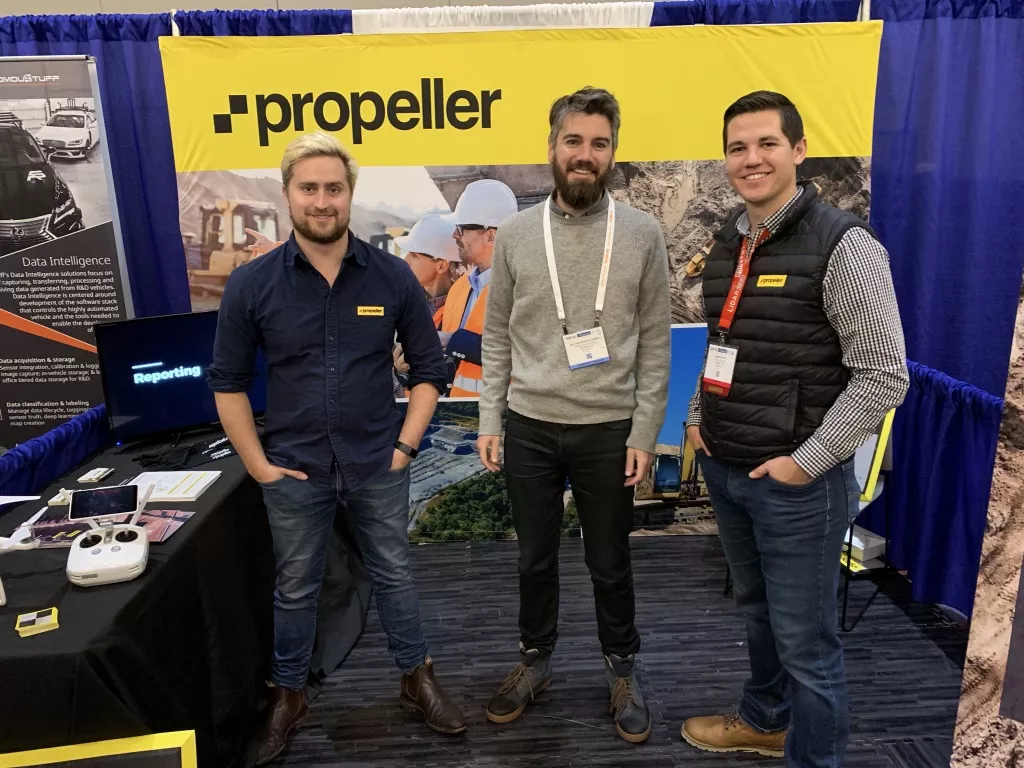Meet the Founders: Francis Vierboom
Over the past few months, we’ve been introducing you to the Propeller team through employee spotlights. Today, we’re doing a special founders edition where we talk to Propeller’s founders, Francis Vierboom and Rory San Miguel. First up is Francis, who’s based in our Sydney, Australia, office.
What do you do at Propeller?
I am co-founder and former co-CEO of Propeller. I looked after both the product and our engagement with customers on the product, as well as the finances, hiring, and managing a bigger and bigger company. I’m maybe managing less product than I wish I could be doing.
What’s your career background?
Just before I started at Propeller, I was working in enterprise security consulting. It was for the big, unglamourous back-ends of banks and big corporations, helping them wire up their HR systems into all their different applications.
I studied law and IT at university. Before that, I’d gotten a job at a tiny little consulting company, where I kept the website running and did a bit of policy writing—it was a weird combination.
I had my first job for like 10 years, then I went overseas for a year, then did security consulting for three years, then I got into the drone startup world.
Where did you grow up?
Until I was six, I was growing up in a small country town called Wallerawang in New South Wales, Australia, while my dad worked on a power station there. (He’s an electrical engineer.) But, really, I grew up in the city of Sydney in Australia. It’s a pretty amazing city and it’s been a great place to live and grow a company while still being around family and friends.
What motivated you to start Propeller?
Before Propeller started, I had joined another drone startup company that was working on drone delivery. (That’s also where I met Rory.) I joined that company thinking drones were a really interesting technology, and, as I worked there, that idea was proven right. I’d helped with software and programming the drone in that company, but I also had the privilege of going through the Startmate accelerator (which is modeled on Y Combinator) and seeing how startup businesses worked. I decided it was a great opportunity to take drones in another direction and see what industrial applications they’d be able to tackle.
When Rory and I started Propeller, we wanted to help make drones a thing. We wanted to figure out the kind of business that would allow drones to make the most impact, that would figure out their real commercial relevance. Of course, we also wanted to have some fun and learn a few things along the way.
Before working at Propeller, what’s the strangest or most interesting job you’ve held?
In between jobs, I lived in Mongolia for a year. I was part of an Australian program that takes young people overseas to work in positions in developing countries. It’s like the Peace Corps in America. I was in Mongolia’s capital (and only) city, called Ulaanbaatar. There’s just over a million people there, which is just over half the population of the whole country.
It was an amazing experience that’s really hard to recreate. Like in the summer, on the weekends, you go horseback riding. That’s really standard. Twenty minutes outside of town and you’re in the middle of nowhere. Then in the winter, it’s -40C. You have to bring a pollution mask because people are burning tires and other pollutants. The city’s covered in a dense layer of smog, which is a different sort of experience, too.
It was an incredible year, and it’s still a place that’s not like other places on earth.
What’s your favorite Propeller memory?
There have been a lot of great moments over the years at Propeller. Taking the whole company to Thailand last year was definitely a huge high.
The good fortune we’ve had, too, in working with great investors over the years has provided a lot of highlights for the company—just knowing we’d take it to the next level.
But what I really do remember is having our very first client. It was a small surveyor in Sydney. We’d gotten their data uploaded on to our platform—it was Version 1—and it was just me and Rory at the time.
I remember looking at the list, and it was a list of one. I remember thinking to myself, “Wouldn’t it be amazing when that list is, like, twenty? That would be incredible.” So it’s really nice to remember that moment of thinking ahead. It’s awesome to think we’ve come as far as we have.
What are you most proud of the company doing today?
I’m really proud of two things. The number-one thing I’m proud of is the team. No matter what you’re doing, the people you’re working alongside every day—that’s what gets you out of bed in the morning. Working with interesting people on hard problems is a big reason why we started Propeller.
The second thing is the way we’ve paid attention to the market for this technology. In a way, we were technical founders, we had a technology that we were excited about and we wanted to see where it would go. We’ve spent a lot of time on what people want to do with the technology, built solutions around those needs, and not gotten ahead of ourselves with our vision of what we can do. Very purposefully, we’ve tried to stay grounded in what customers are actually after and what problems we can really solve.
Any talents, secret superpowers, or fun facts about yourself to share?
I’m mostly notorious for being a huge mic-hog at karaoke. I enjoy it, but it’s probably annoying for other people. Especially when it’s 1:30 in the morning and I’ve programmed the next four songs and three of them are Prince and one is the Doobie Brothers or something like that.
I did sing in choirs when I was younger, and have recently rejoined one, which has been a nice way to break up the week when things get really busy.
What do you like least about your job?
The hardest thing about the job of being a company co-founder or leader is trying to keep your own sense of self-awareness in perspective. As the company keeps getting bigger and bigger, good feedback gets harder to get. When you’re a little garage full of people, it’s really easy to tell how everyone feels.
As a company that values people, one of the things that now takes more effort and time is making sure we have a really grounded feedback culture, which drives really productive relationships within the company.
We work really hard on that, but it’s always an interesting challenge—so maybe it’s not right to say it’s what I like least about the job. It is something that’s challenging and surprising with a rapidly growing company. We now have to be so conscious of the structure and methods for getting that feedback in the same way.
If you could be any piece of technology, what would you be and why?
I’d be a drone because it’d be pretty incredible to be able to fly. I mean, I’d want to do that as a human, so why not get propellers on it?
Do you have an office nickname? If so, what is it and how did you get it?
Well, everyone has to have an office nickname—whether you want one or not.
I’ve always gone by Francis with everyone I know. But gradually over time, the office has insisted on calling me Frank. I still half-way resist it. “Frank” is my grandfather’s name, so I thought I’d leave that to him.
What fictional place would you most like to visit?
That is an interesting question. While I’ve read a lot of books with famous fictional worlds—Lord of the Rings and Harry Potter—I think I’d like to visit someplace less magic-ridden.
It’s kind of a weird answer, but there’s a great Ursula K. Le Guin novel called The Left Hand of Darkness. It’s about an ambassador from Earth who visits a planet where all the inhabitants change sex once a month, spending five days as female and 25 days as male. It’s such an interesting sci-fi book and I think visiting the planet would be just as fascinating.
But if I could have a time machine instead, I’d want to go visit Tudor England to hang out with Thomas Cromwell and hang around for Wolf Hall, but I’d probably just get TB and die.
What are you most excited about for Propeller’s upcoming year?
Well, that’s redacted because our strategy is so exciting! But I am really excited about how much we’re seeing people respond to the cost of survey data going towards zero. That creates a challenge in managing the massive amounts of survey data that are available.
Drones have been the huge change in that process since 2014, which is when we started the company. They’ve made a real step change in the cost and availability of survey information, but we’re still going to see more of that data coming through. There’s more technology getting added onto machines every day providing more info on what’s happening on a site.
The drone vehicle is changing, the kinds of capture available are getting more affordable and flexible. But I think we’re starting to see that it’s not all about drone survey data. It’s about helping a team pull together a view of their site that’s getting closer and closer to real-time.
I mean, if I wasn’t working on a drone company, I’d be working on a driverless car company. There’s so many technologies coming out of that part of the world that are actually going to be surprisingly relevant, I think, to the fact that we’re starting to map the world all the time.
Also, I became a dad at the end of last year! So maybe the thing I’m most excited for this year is, together with my wife, watching my son growing up and maybe saying his first words.

